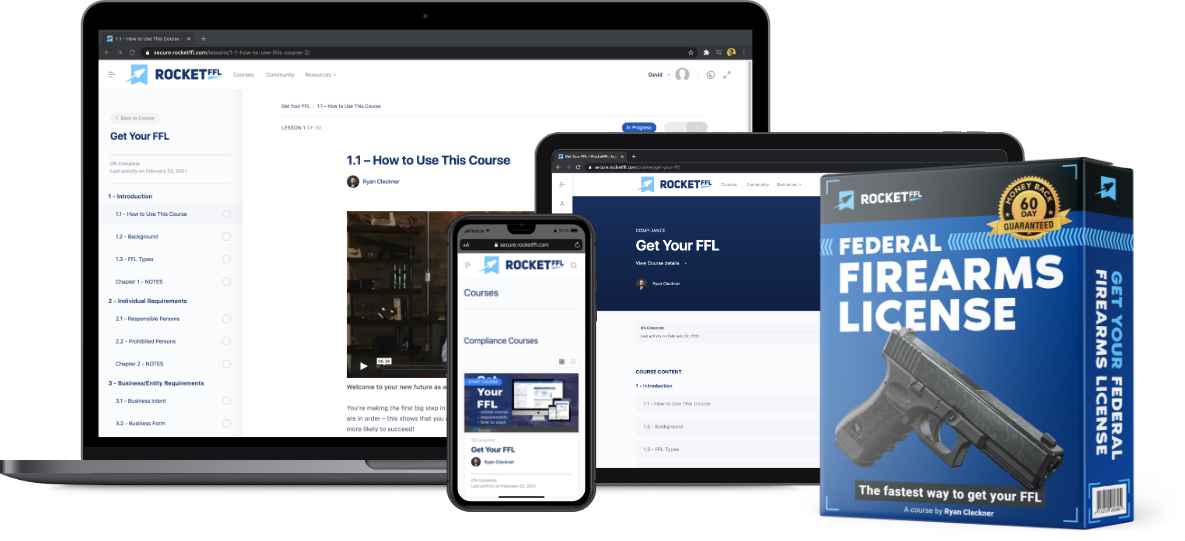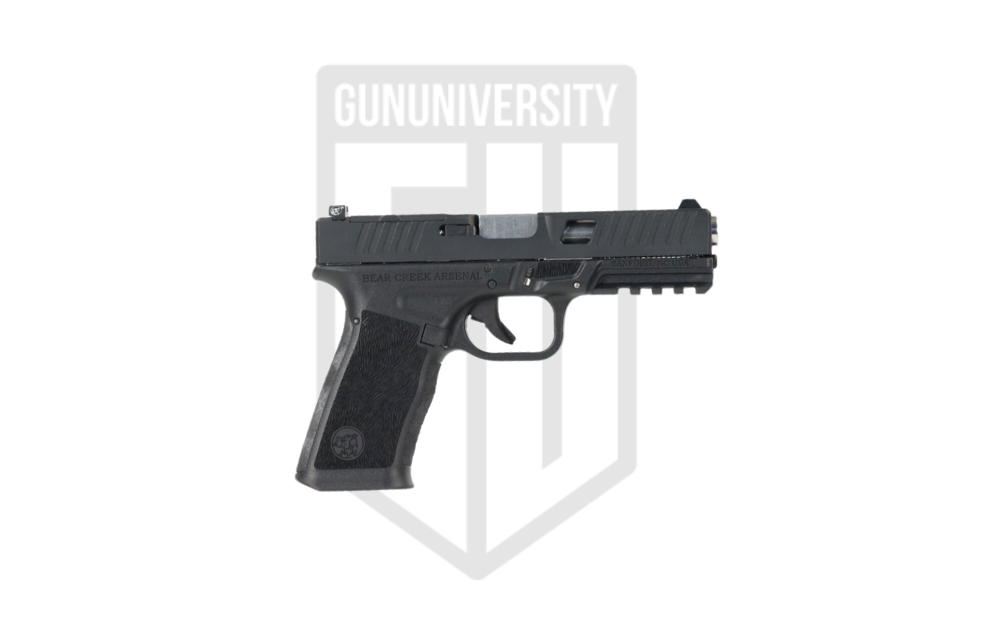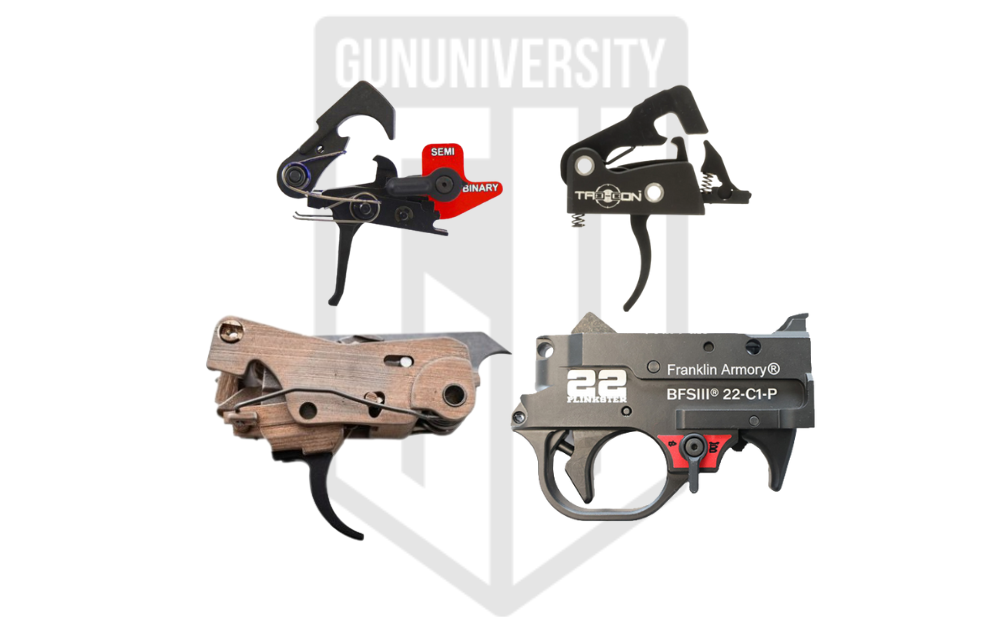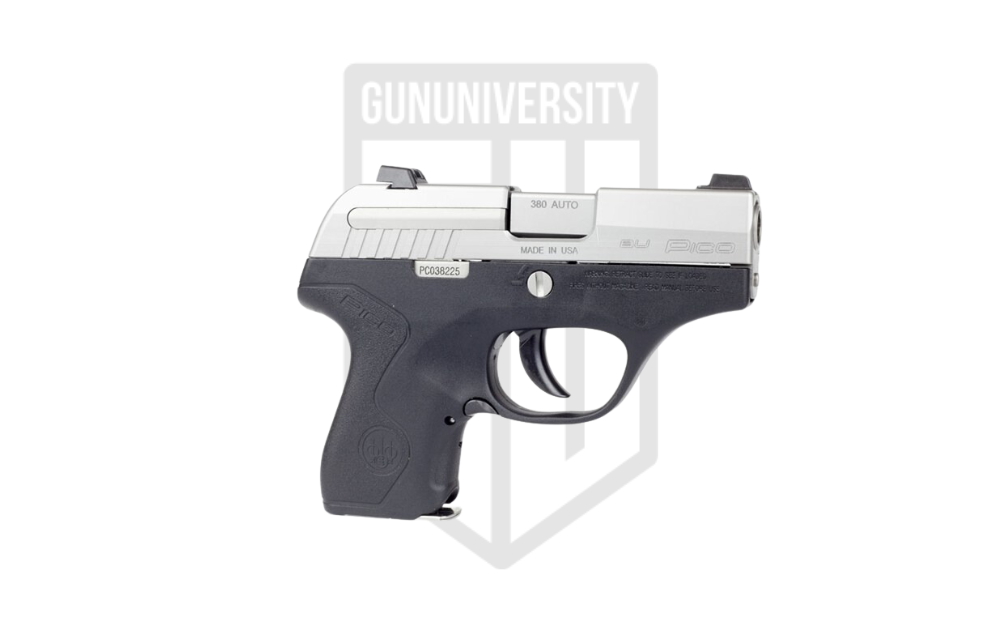How to Get an FFL Without a Business [Complete Guide – 2024]
Contrary to popular belief, a business is NOT required to get a federal firearms license (FFL).
However, it is true that the Bureau of Alcohol, Tobacco, Firearms, and Explosives (ATF) will require a business intent before they issue you an FFL license – even if you are only getting a home based FFL.
This is an important distinction!
We’ll cover the difference between a business intent (which is required for an FFL) and an actual business entity or company (which is NOT required under federal law for an FFL) in this article.
Why should you listen to me? I’m a firearms attorney with years of experience helping clients from the biggest firearm manufacturers to the smallest home-based FFLs stay out of trouble with the ATF and I’ve helped thousands of people get their own FFL.
SUMMARY: If you’re looking for the best and fastest way to get your FFL without a business, check out this course: RocketFFL Get Your FFL Program
Table of contents
Why Should You Get a Federal Firearms License?
Before we cover getting an FFL without a business, first we should briefly discuss why you should get a Federal Firearm License.
Most of the people who get an FFL aren’t looking to become a full-fledged (retail storefront) FFL dealer. Although store-front FFLs need a license, and an FFL is needed to become a firearm manufacturer or distributor, the majority of people are looking to make some easy side income with their passion… firearms.
By getting an FFL, even from your own home, you’ll save money on guns AND make money with guns.
You can order firearms at ffl dealer pricing and you can make money by selling the guns for a profit. You can even make money simply charging for FFL transfers.
And, one of my favorite benefits to getting an FFL, especially if you also become an SOT, is getting acess to firearms you couldn’t otherwise legally possess or make like full-auto machine guns or even armor piercing ammunition.
I own and run RocketFFL to help people get their FFL license.
Is a Business Required for an FFL License?
No, a business is NOT required for an FFL license.
In fact, you can get an FFL from the ATF and become a gun dealer or gunsmith as an individual (no company required).
Although, your state may require you to get a business license as a sole proprietor.
However, in order to get a federal firearms license from the ATF without a business, you MUST set it up the right way. And, if you plan on becoming an SOT to deal with Class 3 firearms (NFA items) someday, you have some important decisions to make about how to set things up now so that you’ll stay out of serious trouble later.
How to get an FFL Without a Business
Getting a federal firearms license – even without a business – is easier than you might think (once you know how to set it up the right way and avoid the most common mistakes people make when they do it on their own).
You can become an ffl holder either as an individual (sole proprietor) or as a company/corporation by forming an actual bsuiness (although it is NOT necessary). There are some potential issues here if you want to deal with NFA firearms because you’ll register as an SOT with either your social security number individually or with your EIN as a company – be careful.
We cover more about this in our course on How to Get an FFL.
Below, we’ll cover a brief overview of the steps to getting an FFL license without a business. If you’d like a more detailed discussion, check out How to Get an FFL.
Step 1 – Ensure You Meet the Requirements
Before you start your FFL application, you must make sure that you aren’t prohibited from getting an FFL license from the ATF.
Simply, if you can legally poseess a firearm or ammunition, you qualify for an FFL. However, there are some other requirements that apply – you can learn more about those here: FFL requirements.
Step 2 – Choose the Correct FFL Type
Which license type you choose for your ffl application will depend on the type of firearm activity you intend to conduct.
There are different federal firearms license types depending on what you want to do. For example, if you want to be a firearms dealer or gunsmith in your own gun store (or at home) you will probably get a Type 1 FFL. However, you can also be a firearm dealer with a Type 2 FFL is you’re looking to pawn firearms.
However, if you want to make firearms for sale, then you’ll probably end up getting a Type 7 FFL from the ATF
To learn more about which type is right for you, check out our article on FFL License Types.
If you’re simply looking to collect Curio and Relic firearms you only need a Curio & relics ffl License (CR license) and there is NO business intent requirement as this license (a Type 03 FFL) won’t allow you to be a dealer. Instead, you can only collect Curioand relics (CR firearms).
If you want to work with NFA firearms, like silencers or suppressors, short barreled rifles (SBR), machine guns, and more, you’ll also need to become a Special Occuaptional Taxpayer (sometimes called a Class 3 license).
Step 3 – Take an Online FFL Course
Sure, you can get your FFL on your own – many people do!
However, by taking an online course, like RocketFFL’s Get Your FFL Course, you’ll learn all of the necessary background information to help you make the right decisions along the way.

Too many people send off their ffl application with mistakes which wil lead to hassles and delays, or worse, they get an FFL but ahve it set up the wrong way and get into serious trouble with the ATF down the road.
There is more than one company that offers courses on how to get your FFL – we encourage you to go check out the others first. We’re confident that RocketFFL is the right course for you becuase it’s the ONLY one taught by an actual firearms attorney and firearms industry and shooting subject matter expert (spoiler alert: it’s me).
In taking the course, you are going to learn things that might make you change your mind about getting an FFL without a business. No piece of advice can apply to everyone – based on your particular situation and needs, you’ll at least be able to make the right choices once you really understand what’s going on.
Step 4 – Submit FFL Application
Once you’re sure that you’ve got everything set up properly, even without a business, you will then send in your FFL application (ATF Form 7) and application fee (the license cost varies depending on the ffl license type you choose) to the ATF where they’ll conduct a background check and then issue you an FFL.
You’ll be sending information, such as your application, photo, and fingerprint card, to the ATF’s federal firearms licensing center and also to your local law enforcement.
Remember, if you want help with any of this, you really should go check out RocketFFL
Home Based FFL
You don’t need an actual gun shop in order to be an FFL gun dealer. As long as it ins’t prohibited by local law, you can be a home based ffl.
In fact, the majority of FFLs in this country are currently home based.
With a home based FFL you can still conduct a retail firearm sale but you might need to do them as online gun sales if you’re not allowed to have retail foot traffic due to zoning issues.
As a licensed dealer operating form home, most people satisfy the business intent requirement by charging for a firearmtransfer.
Starting a Business for Your FFL
Although a business is not required for getting a federal firearm license from the ATF, you may choose to start a business anyway (there are some really good reasons for this covered in the RocketFFL course).
If you’d like to start a busines, you’ll need to determine which business type you’d like to operate (e.g. an LLC or Corporation), establish the business entity, apply for an EIN with the IRS, and register the business with your state.
It’s not as hard as it sounds and the RocketFFL course covers all of this for you
“Business Intent” vs FFL Business
Although we now know that an actual business is not required for gun dealers (or manufacturers), there is a business intent requirement.
What’s the difference between forming an actual business and a business intent?
Great question!
The ATF requires that your FFL license is not solely for personal use. So, although you can use your license to get a rifleor handgun for yourself, personal firearms can’t be the ONLY reason for having an FFL.
Instead, you have to intend to make at least some money with your FFL – whether charging for firearms transfers or even just marking-up your dealer cost firearms a little bit for your friends.
You can do all of this, however, as an individual (sole proprietor) without forming an actual bona fide business.
During your initial meeting with the ATF Industry Operations Investigator (part of the FFL process), they’ll ask to make sure you intend to have some business activity as a federal firearms licensee.
FFL Business Requirements
There are some requirements for a business if you choose to have one for your FFL.
For example, the business must be registered in your state (you need a business license), the business name needs to be on the FFL application to the ATF, and the business MUST be properly formed with all ownership disclosed to the ATF.
If this interests you, you really should go start the FFL process now – if you start today, in 2 months from now, you could have your FFL.
Business Requirements for NFA Firearms
Standard firearms are covered under Title 1 of federal firearms law: the Gun Control Act. These firearms are sometimes called Title 1 firearms.
NFA firearms, however, are covered under Title 2 of United States firearms laws, the National Firearms Act.
It is still not required to have a registered “business” to deal in or make an NFA item.
In fact, you can make an nfa firearm as an individual (without an FFL) through a Form 1.
FFL Business FAQ
No, you do not need a business for an FFL.
You can get an FFL in your name as an individual instead of using a business entity.
No, an FFL costs the same (for each particular FFL type) regardless of whether a business is used.
No, an FFL is not needed to sell ammo (however, if you want to make ammunition for sale, you’ll need an FFL).
Recent Posts
July 27, 2024
July 26, 2024
July 25, 2024

![The Best Shooting Ear Protection in 2024 [Tested]](https://gununiversity.com/wp-content/uploads/2021/09/best-shooting-hearing-protection.jpg)



It means so much to receive positive feedback and know that my content is appreciated. I strive to bring new ideas and insights to my readers.
Your articles are clear, and well written. Thank you.
An odd question, if you have time: when interpreting the phrase “business intent”, does ATF (as part of Treasury) use similar reasoning and considerations as IRS, or are they using materially different criteria?
Different criteria (also ATF is no longer part of treasury).
Can you buy and sell ammo in California with a type 01 FFL?
To have ammo delivered to my house, the company,in California, requires a FFL #.
Thanks!
So as a private individual can I apply for a FFL 01 to purchase firearms for myself?
I’m a military surplus (Milsurps) weapons collector. While I can use a FFL 03 (C&R) to purchase some weapons, some online dealers are being overly careful now (Can’t blame them for being cautious). I’ve found several antique (Pre 1899, and don’t require a AFT 4473/background check) along with C&R (FFL 03) eligible milsurps for sale online and the dealer/seller requires them to be sent to a FFL 01 for transfer. Granted there are some milsurps or mil type weapons that require the use of a FFL 01.
So I’m spending a lot on having antique and C&R weapons sent to a FFL 01 for background checks (4473) and transfer fees. With some local FFLs charging up to $100.00 plus between a convenience fee and transfer fee. My go to FFL retired and most of the current local FFLs are difficult to work with when it comes to wanting to use them as a go between, between me and an online vendor or private seller.